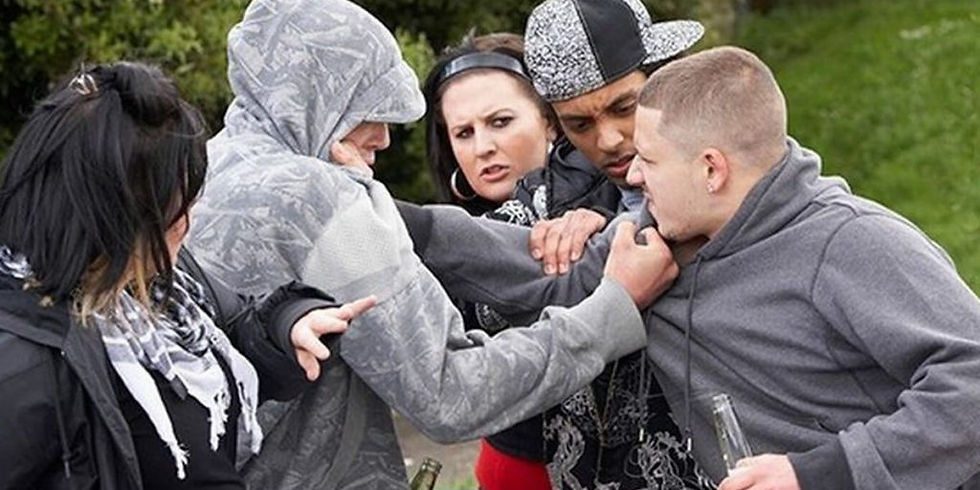Young Adults and violence Teenage Time Bombs
- Vincent Busuttil

- Sep 27, 2024
- 2 min read
Young adults may lose control and become violent due to a combination of emotional, psychological, and environmental factors. During adolescence, hormonal changes can intensify emotions, making it harder to manage anger or frustration. Additionally, undeveloped impulse control, peer pressure, exposure to violence in media or their environment, and struggles with identity or self-esteem can contribute to aggressive behavior. Mental health issues, stress from family dynamics, or experiences of trauma can also play a significant role in triggering violent reactions.
Helping yound adults manage their emotions and prevent violent behaviour requires a multi-faceted approach that addresses both emotional regulation and external influences. Here are some effective solutions:
1. Emotional Intelligence Training: Teaching teens how to recognise, understand, and manage their emotions can help them respond more calmly to stressful situations. Programs on emotional intelligence or self-awareness exercises can be effective.
2. Open Communication: Creating a supportive environment where teens feel comfortable expressing their thoughts and emotions without judgment can prevent emotional buildup. Encouraging open conversations at home or in counseling sessions can be key.
3. Conflict Resolution Skills: Teaching conflict resolution and problem-solving techniques can equip teens with tools to handle disagreements or stress without resorting to violence. Role-playing scenarios can be particularly helpful.
4. Mental Health Support: Providing access to counselling or therapy, especially for teens dealing with trauma, anxiety, or other mental health issues, can help them manage emotional triggers and develop coping mechanisms.
5. Positive Role Models and Mentorship: Connecting teens with mentors or positive role models can help them develop healthy coping strategies and a more stable sense of identity, reducing the likelihood of emotional outbursts.
6. Physical Outlets for Energy: Encouraging teens to engage in sports, martial arts, or physical activities can help them release built-up frustration in a healthy way. Exercise is also beneficial for managing stress and improving mood.
7. Social Support Systems: Fostering strong, positive friendships and peer groups that discourage violent behavior can reduce the influence of negative peer pressure and support healthy emotional development.
8. Mindfulness and Relaxation Techniques: Introducing teens to mindfulness, meditation, or breathing exercises can help them gain better control over their emotions and reactions in stressful situations.
9. Clear Boundaries and Consequences: Setting consistent rules and consequences for violent behavior while reinforcing positive behavior can provide structure and help teens understand the importance of emotional control.
10. Parental Guidance and Education: Providing parents with tools and strategies to guide their teens through emotional difficulties and model healthy emotional regulation can have a lasting impact.
These solutions focus on emotional awareness, building coping mechanisms, and creating supportive environments that help teens avoid violence and manage emotional control.
Author
Vincent Busuttil





Comments